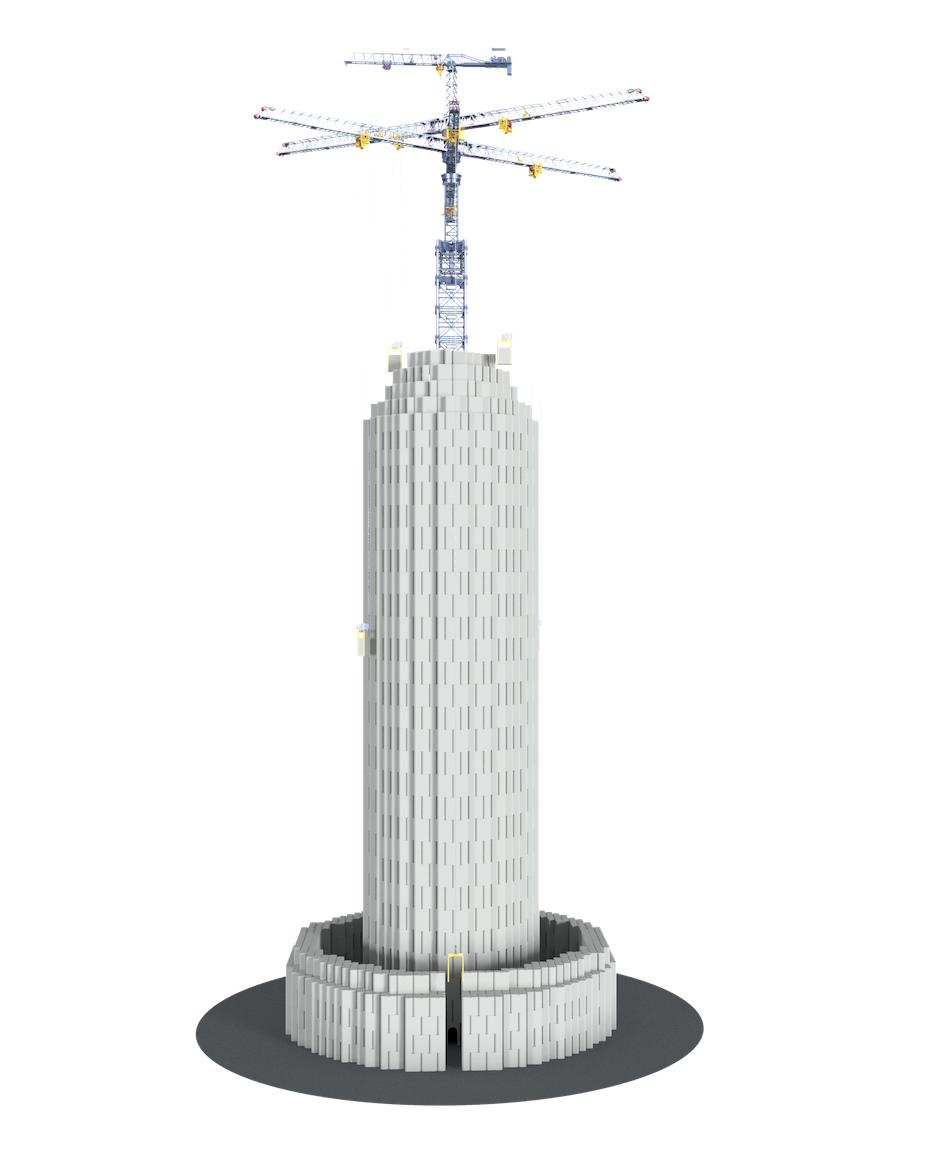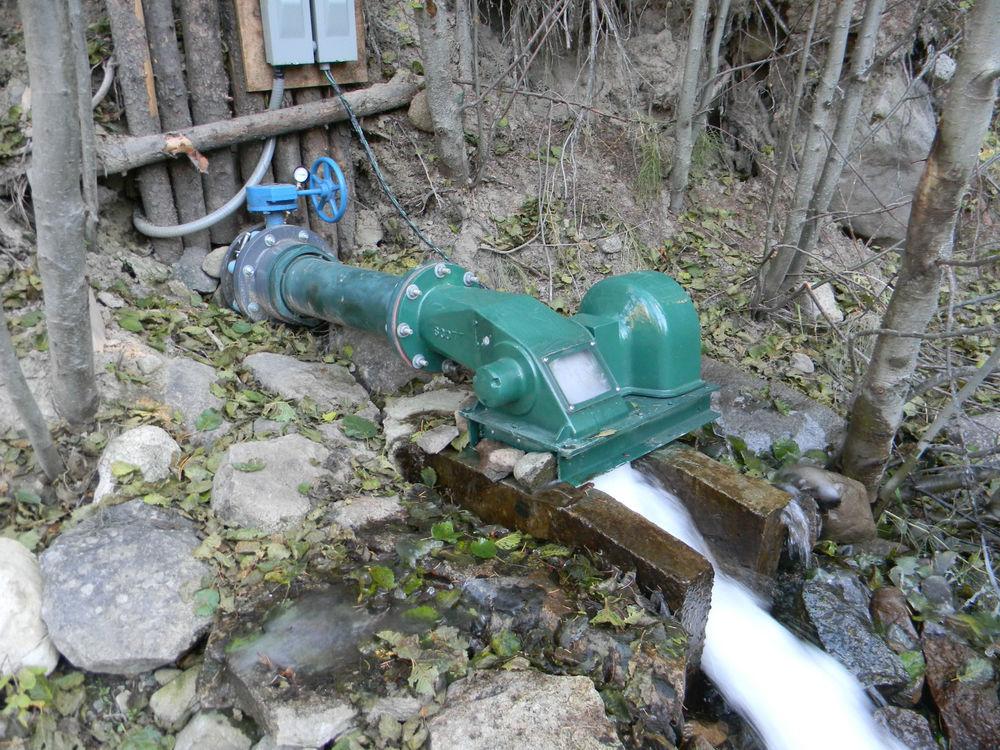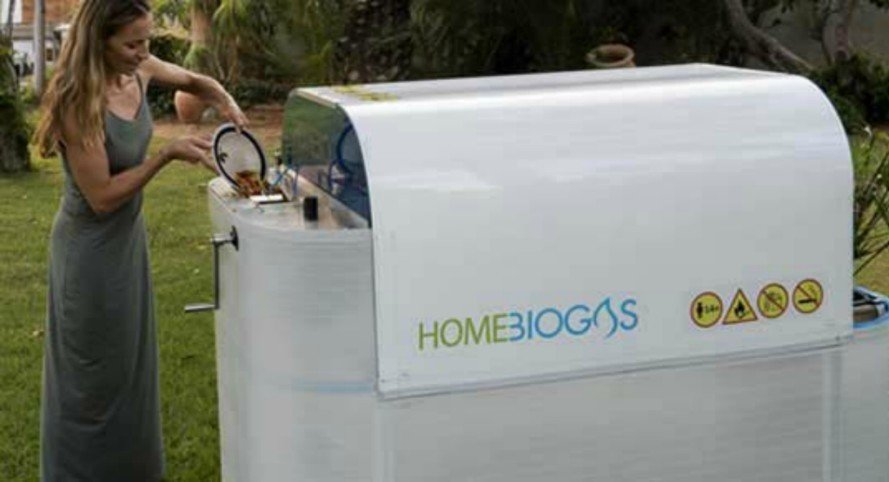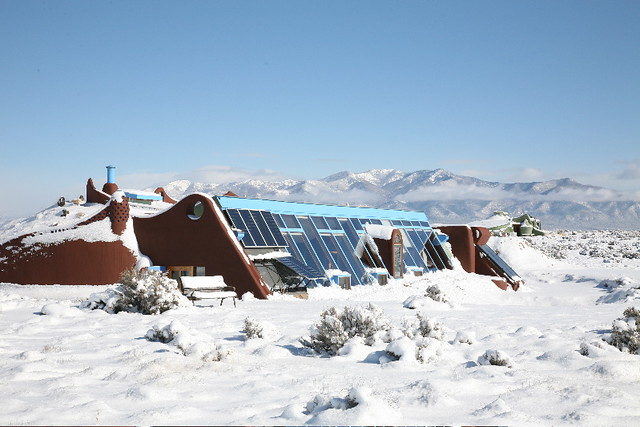So... I have a family that lives in a remote mountain chalet. They need utilities. I think I'm set for gas (propane), water, septic and communication, but I have a question regarding electricity. Now, I plan to give them super-sufficient generating capability (combination of wind and solar) and may even hand-wave them being "on grid" (so they can sell their extra capacity). However, they would like to be able to supply themselves without the grid and without resorting too much to propane-powered generators (though I expect they'll have one for backup).
Now, this means they need a fairly capacious ability to store energy in order to meet demand in the face of a fluctuating supply (especially for solar). The "obvious" answer is a really big battery bank, but batteries are so... pedestrian.
What could they use instead of batteries? I'm guesstimating the household's energy use to be about 4KW average (big house, big pool), though figure in a pinch they could cut this by at least a third. Based on that, I figure they would want a minimum 100 KWH storage capacity, though ~500 KWH would be much better. Bonus points for long lifespan and low maintenance.
I am leaning toward 'flywheel', but I'm not sure how feasible this is, and I'm open to other ideas. (Am I completely insane to not just use batteries?)
(This is an alternate reality, and the family has considerable financial resources and political clout. They can probably get away with something that ordinary people would have trouble getting permitted.)
Postmortem:
First off, thanks, as always, for all the interesting answers! Lots of interesting stuff here that hopefully will help others as well.
For my purposes, however, my characters would rather not engage in a massive geological engineering project when batteries could do the same job at a price that is comparably negligible. I'm also looking for something where the storage can be very close to the chalet; my objective (someone else's may differ, which is why I love to see these answers even if I don't use them!) is to have backup in case of e.g. a delivery line breakage. Also, since they're sitting on a mountain, geothermal seems "iffy"; there's some topsoil, but they're a lot closer to sitting on solid granite than your average house.
That all steers me toward something that can fit in a (large) shed; batteries, HFCs, CAES, or my original idea, flywheels. Both HFCs and CAES seem "fiddly" by comparison, and it's less clear if the technology is well-proven. Batteries, of course, are known to work, but are somewhat limited in lifespan, wear out a bit more from charge/discharge cycles, and as stated, they're boring 😉. That leaves flywheels, which are well-proven, fairly efficient, and absolutely meet the desired cool-factor.
Why I accepted sphennings' answer:
Mazura says:
Flywheels is currently answer #4 of 19 at the link. IMO, if 'energy storage' ("store energy") is in the question, Tim B's answer¹ has you covered, because it('s short and to the point and) has a link to Energy Storage, Wikipedia, in which you will find a link to FES, while the accepted answer here links to some random PDF.
(¹ I assume Mazura is talking about this answer to a different question?)
So, there's the "minor" issue that the answer I assume Mazura is referencing isn't even posted here, which makes it hard to accept. However, even it it was, I would still accept sphennings' answer.
First, I'm not sure the order in that article has any significance, and anyway the first two are impractical for a "family residence" as noted above. Second and more pertinently, because Wikipedia is, at least for my purposes, shallow. The "rule" for accepting an answer is to accept the one that is most helpful, and that was sphenning's, hands down.
Wikipedia provides generalities, which is nice if you're trying to understand how something works. It's less helpful for making concrete decisions. That "random PDF" that sphennings turned up (and which I hadn't managed to find on my own, so thank you again!) pointed me at, not a vague technological overview, but a specific, existing system that is pretty much exactly what I had in mind. There's a significant difference between some vague notion of "maybe something using this technology could work" (Wikipedia) and "this specific, existing product meets my needs" (sphennings' answer). Unlike Wikipedia, that not only gave me hard numbers on what sort of system I would need, but it gave me a price tag... which is not trivial (around $130k²), but for my purposes, totally within reason.
Again, the criteria for acceptance is the answer that "solved your problem or was the most helpful in finding your solution". While I'm thankful for all the answers (and have upvoted accordingly), IMNSHO sphennings deserves (and has received) the credit for the answer that was most directly helpful to my specific problem.
(² Not an actual quote from the company, but based on a Google result that mentioned what price point the company is "trying" to hit. However, since this is for a story that doesn't take place in the real world, I don't mind hand-waving and assuming that someone hit that goal, if not better.)





